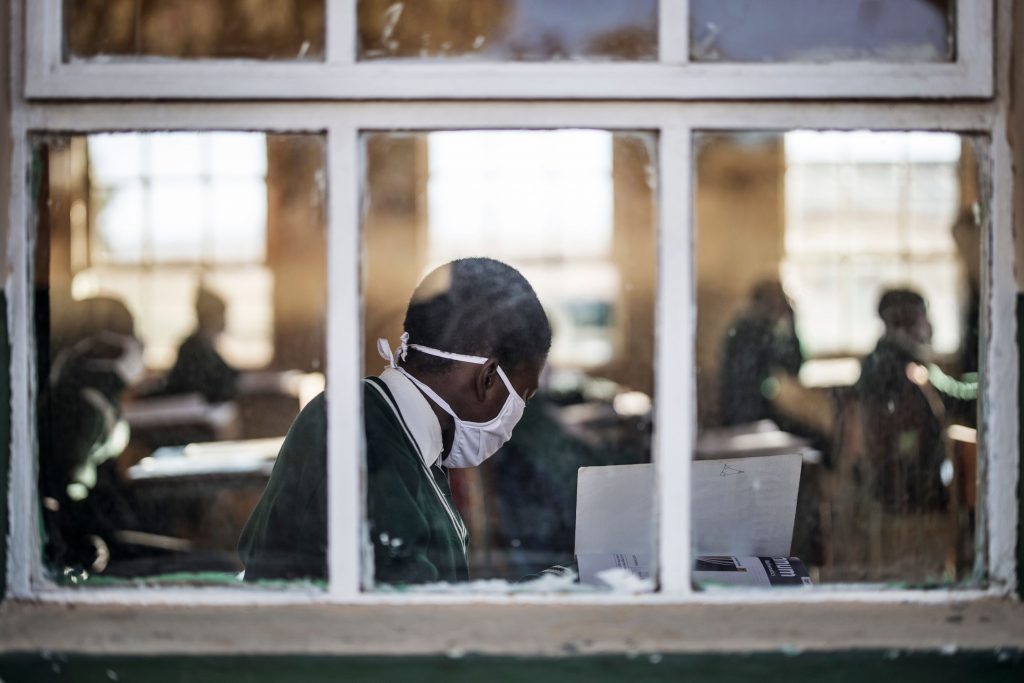This Youth Day, Amnesty International South Africa is calling on the government to prioritise fixing South Africa’s failing education system so that all youth, no matter their background, have an opportunity for a better future.
In his weekly newsletter on Monday, President Cyril Ramaphosa said that the government was focused on enabling the full participation of young people in the economy. This, however, is not possible if the country’s education system is still broken and unequal, Amnesty International South Africa’s Executive Director Shenilla Mohamed said.
“The dire state of education in South Africa has a direct impact on youth unemployment in this country. If President Ramaphosa wants the youth to be at the centre of the economy, his government needs to first fix the appalling state of education in this country,” Mohamed said.
“The youth of 1976 died for decent and equal education.”
Data released by Statistics South Africa at the beginning of this month, shows that the official unemployment rate among the youth, between the ages of 15 to 34, was 46.3% in the first quarter of this year. It also showed that of the 7.2-million unemployed, more than half had education levels below matric.
“South Africa’s education system is unfortunately still plagued by the legacy of apartheid, with children in poorer communities and previously disadvantaged backgrounds still bearing the brunt of the government’s failure to ensure that everyone has access to decent education. The youth cannot continue to be punished for the government’s failures,” Mohamed said.
In February, Amnesty International released its report, Failing to learn the lessons? The impact of COVID-19 on a broken and unequal education system, which showed how the pandemic had plunged South Africa’s schools further into crisis, exposing how the country’s education system continues to be shaped by the legacy of apartheid.
The report highlighted how students from poorer communities have been cut off from education during extended school closures, in a country where just 10% of households have an internet connection. Meanwhile, historic underinvestment and the government’s failure to address existing inequalities has resulted in many schools still not having access to running water or safe and adequate toilets. This is in addition to trying to learn within overcrowded classrooms and crumbling infrastructure, thus denying the right to a safe learning environment.
The report built on another report released by Amnesty International in February 2020 showing how, prior to the pandemic, South Africa’s education system was already characterised by failing infrastructure, overcrowded classrooms and relatively poor educational outcomes, whilst perpetuating inequality and as a result, failing too many of its children, with the poor hardest hit.
South Africa is now officially in the midst of the third wave of the COVID-19 pandemic with an ever increasing number of infections and concern about the rising number of cases in the country’s schools.
“South Africa’s schooling system is so under-equipped that the pandemic has all but ended education for many pupils, especially those from already disadvantaged communities,” Mohamed said.
“We are calling on the government to learn the lessons of what worked and did not work over the past year-and-a-half and ensure this time round that all children have access to adequate learning and that the education system does not continue to be broken and unequal,” Mohamed said.
“We cannot expect every young person to have an opportunity to build a better life for themselves and society in the future if the government does not ensure that they uphold their right to decent education now.”
Background
Youth Day in South Africa is celebrated on 16 June, to commemorate the historic 1976 Soweto uprising, which saw thousands of black students take to the streets in protest against the apartheid government’s Bantu education system with many of them being killed and injured by the regime.
For more information or to request an interview, please contact:
Amnesty International South Africa’s Media and Communications Officer Genevieve Quintal on +27 64 890 9224 or email genevieve.quintal@amnesty.org.za


